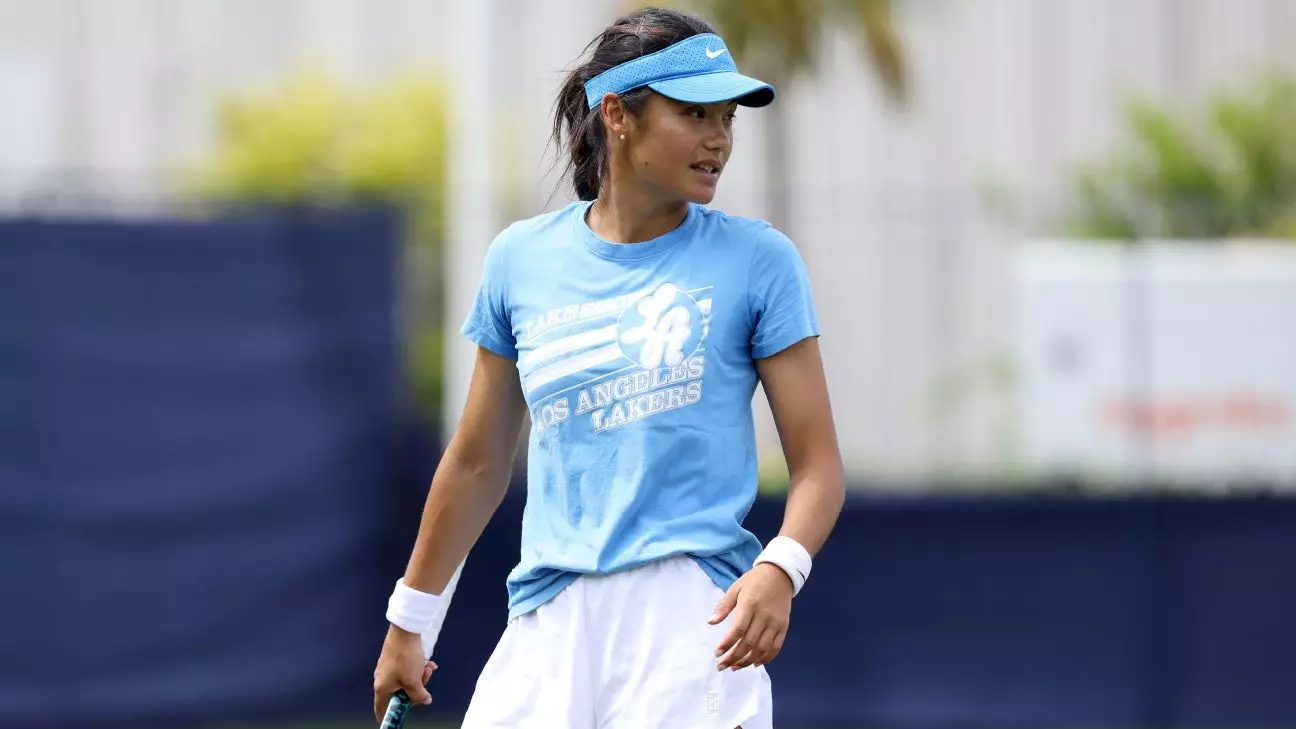Emma Raducanu, the celebrated US Open champion, has recently underscored a harrowing reality that many sports figures, especially women, face: the threat of stalking and harassment. Raducanu’s experience of being stalked at multiple WTA events earlier this year highlights the precarious balance athletes must maintain between public adoration and personal safety. It’s a stark reminder of the darker side of celebrity, where the lines between admiration and obsession can blur alarmingly. The stalking situation culminated in a tearful moment for Raducanu during a match in Dubai, illustrating not only the emotional distress that accompanies such violations but also the tremendous pressure athletes endure while competing in their field.
A Symphony of Support: The Importance of Safety Protocols
In the wake of Raducanu’s distressing experiences, her relief upon learning that Wimbledon officials had taken measures to prevent her stalker from attending the tournament is palpable. As she expressed gratitude towards the All England Club for their swift actions, it’s evident that institutional support plays a critical role in ensuring athlete safety. The proactive measures taken, including the blocking of the stalker’s access through thorough checks of public ballot applicants, should serve as a blueprint for other sporting events worldwide. Such initiatives reinforce the notion that athletes’ well-being cannot be seen as secondary; instead, it must take center stage to foster an environment where players can perform without the looming fear of personal threats.
Breaking the Silence: Raising Awareness on Harassment
Raducanu’s candid acknowledgment that she’s not alone in experiencing such threats is a vital statement aimed at destigmatizing the discourse surrounding harassment in sports. Notably, her reference to the experience of fellow athlete Katie Boulter regarding online abuse opens a crucial dialogue on the pervasive issues that many women encounter—not just in sports but across society. It’s an assertion that urges women to share their stories and experiences, thus fostering a culture of solidarity. By using her platform to speak out, Raducanu further positions herself as a trailblazer; she’s not merely a tennis player but also a voice for resilience and genuine change.
Strength Amidst Vulnerability: Moving Forward
Raducanu’s reflections also highlight the importance of adequate security and protection at events, especially in crowded environments like Wimbledon. Her reassurance with increased security measures signifies a broader need for systemic changes across all sporting events, ensuring that athletes—and particularly female athletes—can perform without encumbered by the shadows of intimidation. It’s heartening to see that within the sphere of sports, collective efforts are gaining momentum, aiming at amplifying the safety protocols and the emotional well-being of athletes.
In a time where the intersection of fame and vulnerability can feel precarious, Raducanu’s story is a clarion call for change—inviting not only sporting organizations to act decisively but also society as a whole to be more vigilant against the perils of celebrity culture and personal safety.


Leave a Reply